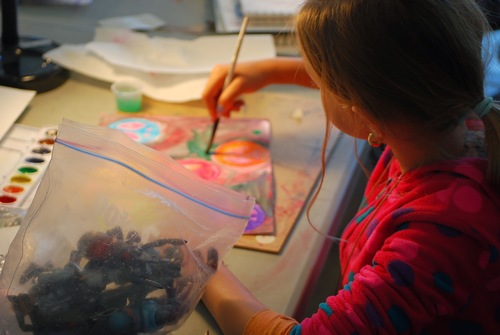Priorities
The Nancy Buck Ransom Foundation (NBRF) funds youth-serving programs in Crivitz, Wisconsin and Monterey County, California that enable youth and families to flourish and prosper. Our purpose is to partner with and support organizations who reduce the barriers that prevent success and support the development of children and youth.
We envision a world where ALL children have what they need to thrive. This vision is at the center of our work.

Trust, respect, and belonging are the core values that guide our work with partners, communities and each other. We recognize that the grantmaking process is an expression of our values and the primary way we build relationships and fulfill our role in the nonprofit sector. We also acknowledge the challenging power dynamics that comes from an imbalance of resources. We strive to minimize the unequal power dynamics that tend to exist between foundations and grantees and use our unique position to further our partners’ work in the communities we serve.
In our work with applicants and grantees, we seek to implement our core values by:
- Building relationships grounded in trust and mutual goals
- Practicing transparency and honesty in all of our work
- Being accessible and available to do the good work together
- Promoting the values and practice of diversity, racial equity, inclusion and belonging
- Serving our community with humility and grace
Geographic Priorities
Nancy spent the last 40 years of her life living and working in Monterey County California. In addition to the support provided to CYI, the Nancy Buck Ransom Foundation (NBRF) is able to support youth programs in Monterey County.
In 1971, Nancy and her mother, Constance Buck, established Crivitz Youth, Inc. Crivitz, Wisconsin was the location of the Buck family vacation home, Thunder Mountain Ranch. Nancy spent her summers there and wanted to provide a way to give back to that community. They created CYI and set out to build a teen center to provide year-round activities to local youth. The teen center was completed in 1972 and was followed by the creation of a pre-school program in 1981. They outgrew the original building and by 1997 construction of a Child Development Center was complete. The most recent addition to CYI was a Community Center that includes a fitness center, therapy pool and gym facility for all local residents.
Programmatic Priorities
As a small foundation, we understand our limitations in bringing real change to the youth of our community. We fund organizations who are working towards more systemic reforms to improve areas such as child care, education, health equity and other youth-led and/or youth-centered campaigns.
Our youth need programs that encourage trust, respect, self-esteem and, ultimately, independence.
Family and caregivers are the foundation of youth development and should be supported as such. We support parent/caregiver support groups and education, early emotional intelligence programs and maternal mental health among other things.
Promoting a sense of belonging is fundamental to attracting and retaining the participation of young people, as well as helping them develop confidence and a personal identity. Young people need to feel and to be included, regardless of their gender, ethnicity, sexual orientation, personality, or physical, intellectual, or social limitations.
At the heart of many community programs for youth are opportunities for skill building. Programs can use a wide variety of activities, such as community service, adventure and outdoor activities, art, drama, music, cultural awareness, academic improvement, and career preparation, etc. to support positive youth development and to meet the program-specific objectives. Programs such as these teach skills but they also work on overall development through responsibility, leadership, persistence, and connection to the family, schools, and the community.
Kids must feel safe and secure, with their basic survival needs met: shelter, food, clothing, medical care and protection from harm.
Of the applications we receive within our programmatic priorities, we prioritize organizations that:
- Intentionally focus on serving those facing the greatest barriers to opportunity
- Center children and families in their approach and in their work
- Develop diverse organizational leadership (staff and board)
- Celebrate the diverse makeup of families and emphasize cultural responsiveness
- Prioritize authentic community engagement and leadership
- Advocate for systems change and anti-racist policy reform to better support children and families